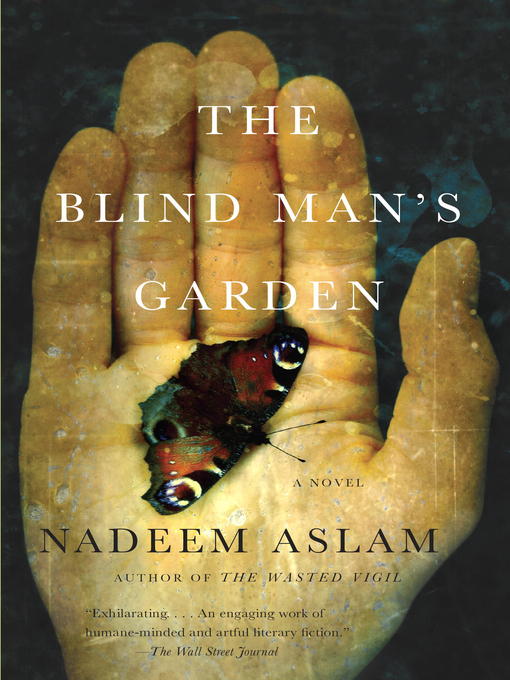
The Blind Man's Garden
کتاب های مرتبط
- اطلاعات
- نقد و بررسی
- دیدگاه کاربران
نقد و بررسی

June 24, 2013
When foster brothers Jeo and Mikal decide to leave Pakistan for Afghanistan in order to help the wounded, they have no idea what this simple desire to help will cost themselves and their loved ones. Award-winning novelist Nadeem Aslam's fourth novel (The Wasted Vigil, Maps for Lost Lovers) chronicles the story of a family in Pakistan immediately after 9/11, where politics and religion color almost every aspect of daily life but love and family still reign supreme. Although the plot turns on the American and Taliban presence in Afghanistan, the focus is on humanizing those that get caught in between and the personal reasons that inform their decisions and alliances. While Jeo and Mikal navigate the dangers of Afghanistan, Jeo's bride, Naheed, helps her father-in-law, Rohan, transition into a life without sight. The relationship between the Christian school where Rohan's daughter, Yasmin, and her husband work and the rest of the community also becomes fraught with hostility, as militant Islamists begin to question its presence. Aslam shows the difficulties of living in a place where religion rules everyday living, but stresses the universality of their sufferings and desires. There are fits of beauty and lyricism through the novel, but the uneven pacing leaves the novel unbalanced. However, Aslam gives an empathetic, unbiased look at one of the most polarizing issues of the day and allows us to see the humanity in those that we call our enemy.

The war in Afghanistan, as seen from the other side--or, better, another side. "[H]ave you ever heard a story in which the evil person triumphs at the end?" So, three paragraphs into Pakistani-born, British author Aslam's (The Wasted Vigil, 2008, etc.) latest, a father, Rohan, asks his son, Jeo. Always careful, Jeo thinks for a moment before replying that the trouble is that on the way to defeat, evil people "harm the good people." Good and evil are porous categories: Jeo is a medical student, while his brother Mikal works at a gun shop, but both rise to the cause when American troops invade neighboring Afghanistan, joining the jihad against them. Jeo volunteers at a hospital in Peshawar, while Mikal crosses the border to fight alongside the Taliban; for his trouble, he is captured by American soldiers and subjected to interrogation that promises to become torture ("Mikal refuses to speak and they take him to a bare windowless room, attach a chain to his wrists, and...fasten the chain to a ring on the ceiling"). Suffice it to say that the tables turn. The saga of war and sacrifice stretches across the centuries--midway through the story, Rohan, benevolent but given to despair, finds himself wondering whether he has not been cursed in some way because his great-grandfather had sided with the British during the mutiny of 1857. Aslam finds poetry in scenes both ordinary and dreamlike ("the moonlight pale as watered ink"; "Rohan dreams of an American soldier and a jihadi warrior digging the same grave"). At times, the images he conjures seem improbable, as with an American commando who carries a snow leopard cub inside his shirt, but the writing is so assured and the story so urgent that it's easy to suspend disbelief. Aslam sympathizes not with causes, but with people, and this is a memorable portrait of a people torn apart by war. COPYRIGHT(1) Kirkus Reviews, ALL RIGHTS RESERVED.

November 1, 2012
Winner of Betty Trask and Kiriyama honors and short-listed for the International IMPAC Dublin Literary Award (for Maps for Lost Lovers), Aslam is among an outstanding group of Pakistani-born writers now working in English. His The Wasted Vigil is as nuanced a discussion of Middle East complexities as one can find and one of my favorite novels. Here, foster brothers Jeo and Mikal surreptitiously cross the border from Pakistan to Afghanistan shortly after 9/11, intent not on challenging U.S. troops but caring for the wounded. They leave behind their blind, widowed father, mourning his possibly rash actions in support of his country and Islam, and Jeo's wife. Don't miss.
Copyright 2012 Library Journal, LLC Used with permission.

























دیدگاه کاربران